I’m not a Farmer, but… Business executive who brings all the smoke shares his love for food, family gatherings, and the importance of American farmers.
Author
Published
9/30/2025
Utah Farm & Fork got the chance to visit with Jeremy Andrus, CEO of Traeger Grills, to talk about his love for gathering with family around the dinner table, the importance of creating memories with people and food, and why supporting local agriculture is important to him…
Some of Jeremy’s answers have been lightly edited for length and clarity.
Tell us about your family dynamic growing up, and then moving to live in Utah.
I kind of grew up all over the world, but started in the Midwest. My formative years as a child were in Minnesota, in a middle-class family in a small town. My dad worked for General Mills, and when I was 10 years old, he was transferred to England. That was a moment that opened my eyes to the world. He had to travel a lot, but instead of taking a plane, my dad would gather us all up in a Peugeot station wagon and drive all around Europe. Up until that time, the only part of the world I had seen was when our family would drive from Minnesota to southern California to visit my grandma. This changed my perspective on cultures, on food, and on people.
My junior high school years were spent in Boston, and then high school in Washington, D.C. But 20 years ago, we landed in Utah and I’d never live anywhere else. It’s just home.
Having lived in many places in the world, or at least traveling to them with various business opportunities, what do you like about living here?
I ultimately moved back to Utah to run a startup technology company named Skull Candy – after having attended BYU for four years – and wasn’t sure it would be a long-term move as a single guy in his 20s. But I moved into my parents’ basement in Park City and thought I might run this startup for a year or so, and if it didn’t work out, at least I had time to get a good ski season in. But now, 20 years later, it’s the longest time that I’ve ever lived in a single place. My wife’s not from here either; she’s from the Bay Area of California, but our six children have been born here, and it just feels like home. We love it here because of the outdoors. We enjoy spending time in the mountains, going mountain biking, and as a family, we love attending the Oakley rodeo. We love the feeling of Americana that is in Utah, which is just different from living on the East Coast.
It has been a very deliberate process to stay here. We bought Traeger and moved the company here [from Oregon], because we didn’t want to live anywhere else.
How did you get into business leadership?
My time at Skullcandy marked my first experience as an entrepreneur and my first success. I had always been an entrepreneur, starting at seven years old with a paper route. Shortly after, I bought a lawnmower to cut the lawns in my neighborhood. I was always selling something door-to-door, which led me to think of building a business. But somehow, I got involved in non-entrepreneur things out of college. I was a management consultant and hated it. I tried day-trading stocks full-time, and it was a great and miserable experience that taught me a lot. I just felt lost in a big corporation, where I was just a guy on a spreadsheet.
But I got a call from a friend about an opportunity to get started early with an idea called Skullcandy. I was riding the bus to the financial district of San Francisco, where I worked, and I noticed people wearing white earbuds to listen to their iPods. Skullcandy was only three people at the time, with the founder integrating audio and mobile phone technology into snowboard helmets. I learned more and just knew I wanted to be a part of this. So, despite all my business school debt, I quit my job, got in my car, and drove to Utah and moved into my parents’ basement.
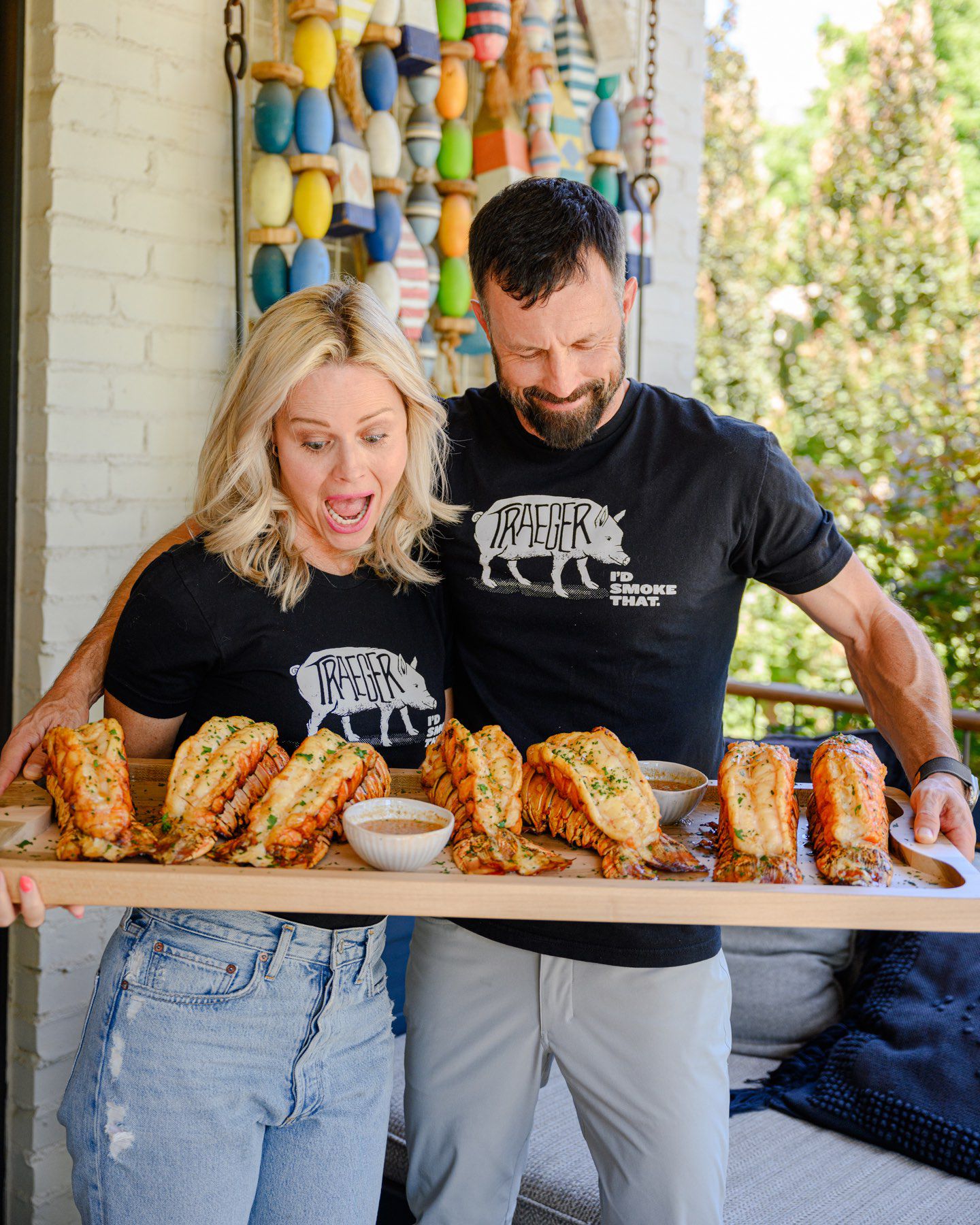
But Utah changed my life. It’s an incredible place to build a business. There’s great energy, and vibrance, and good people who work hard – but they also tend to balance work and family very well. But being in this business, you hope to build things that are bigger than you think you can accomplish. There has been some luck involved in our success – both good and bad – but I also attribute some of this success to being in Utah. The local and state governments have been great; the community has been friendly and has invested in our business, but it’s a blessing to be here.
Just as tariffs have impacted agriculture and trade, you’ve said that they have affected your business as well.
Yes. It’s messy, but as much as it’s been hard for me as a business owner right now, I’m all in on America and Utah, and that we’re going to survive this. We must make some tough decisions in our economy, but I’m hopeful that the changes we’re making will ultimately benefit our country.
What was the favorite meal/food you ate growing up? Or what food memories do you have from your childhood?
My wife doesn’t do casseroles, but there is one from my childhood that I love – chicken broccoli rice casserole. That is Minnesota! We didn’t eat out, so we made dishes like beef stroganoff, biscuits, and casseroles.
How did you get involved with a business like Traeger?
After leaving Skull Candy, I wanted to get involved in a business that was all about the customer. I visited Oregon to understand their customer base, and I fell in love with the place because I believed it had the potential to become a great American brand. Backyard barbecues are quintessentially American, as is outdoor cooking, and food is what brings us together. In our homes, backyards, neighborhoods, congregations, tailgating at football games, etc. My family really views food as an opportunity to be together, and rarely does a Sunday go by that we don’t have lots of family over. So, the business was important, but it was also a form of self-expression for what was important for us as a family. It’s a company that is rooted in something that we care deeply about. Our mission at Traeger is to bring people together in a more flavorful world, and the flavor is in the food – of course – but our company is about democratizing cooking by helping all be able to prepare good food and share with others.
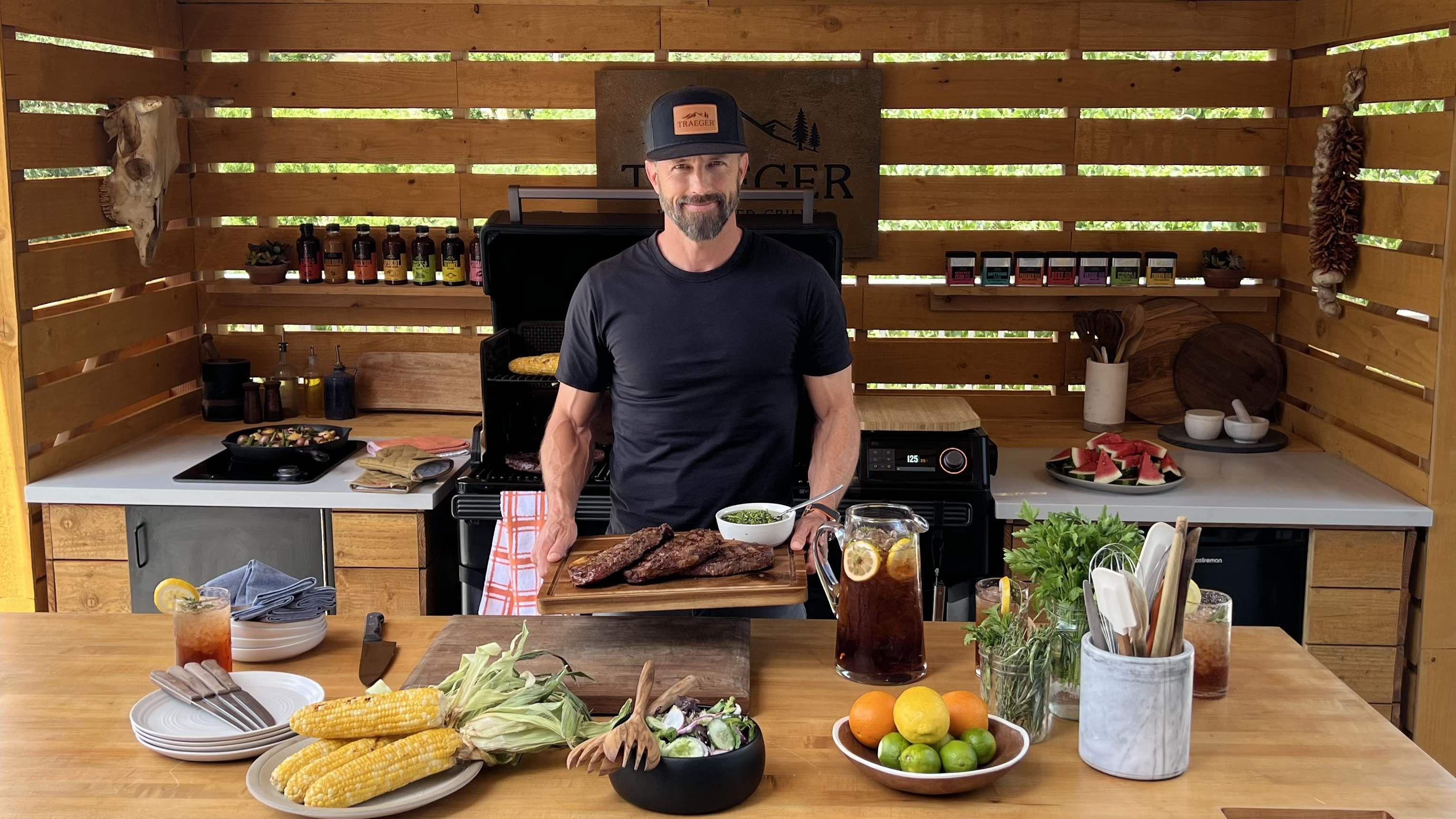
I love that Utah has taken pride in Traeger being a local brand, and we’ve really tried to be good local corporate citizens. We’ve focused everything on Utah first, and it’s been great to see Utah become the state with our highest penetration of grills on back decks.
Are there favorite restaurants in Utah that you like to go to?
Though I’m a foodie now, I still appreciate good, flavorful comfort foods. I can enjoy some fine dining, but I tend to leave feeling like I experimented more than I enjoyed; I’m hungry, and it’s a stiff white tablecloth experience. What I really love to do is to take my kids to Real Taqueria in Holladay, which is near our house. It’s the best Mexican food. More than food being refined and of high quality, we want it to taste good and to create an experience.
I’ve been to investor dinners in New York with fine meals being prepared, and I’d rather have a double cheeseburger with bacon. But that’s just me. When we get to travel as a family, I’m often looking for what food we get to eat, rather than what sights we’re going to see.
What comfort food do you like the most?
I’m a meat-and-potatoes kind of guy. Things that I like to cook on a Traeger change, but honestly, what I keep coming back to is beef tenderloin. Cook it low and slow at 225 degrees, turn on the smoke, put a great rub on it, and cook it medium-rare. Then I put it on cast iron and pan fry it and slice it. Then I’m cooking potatoes at the same time that are thick-cut and salt-crusted, and then some asparagus. That’s the best meal I can hope for. 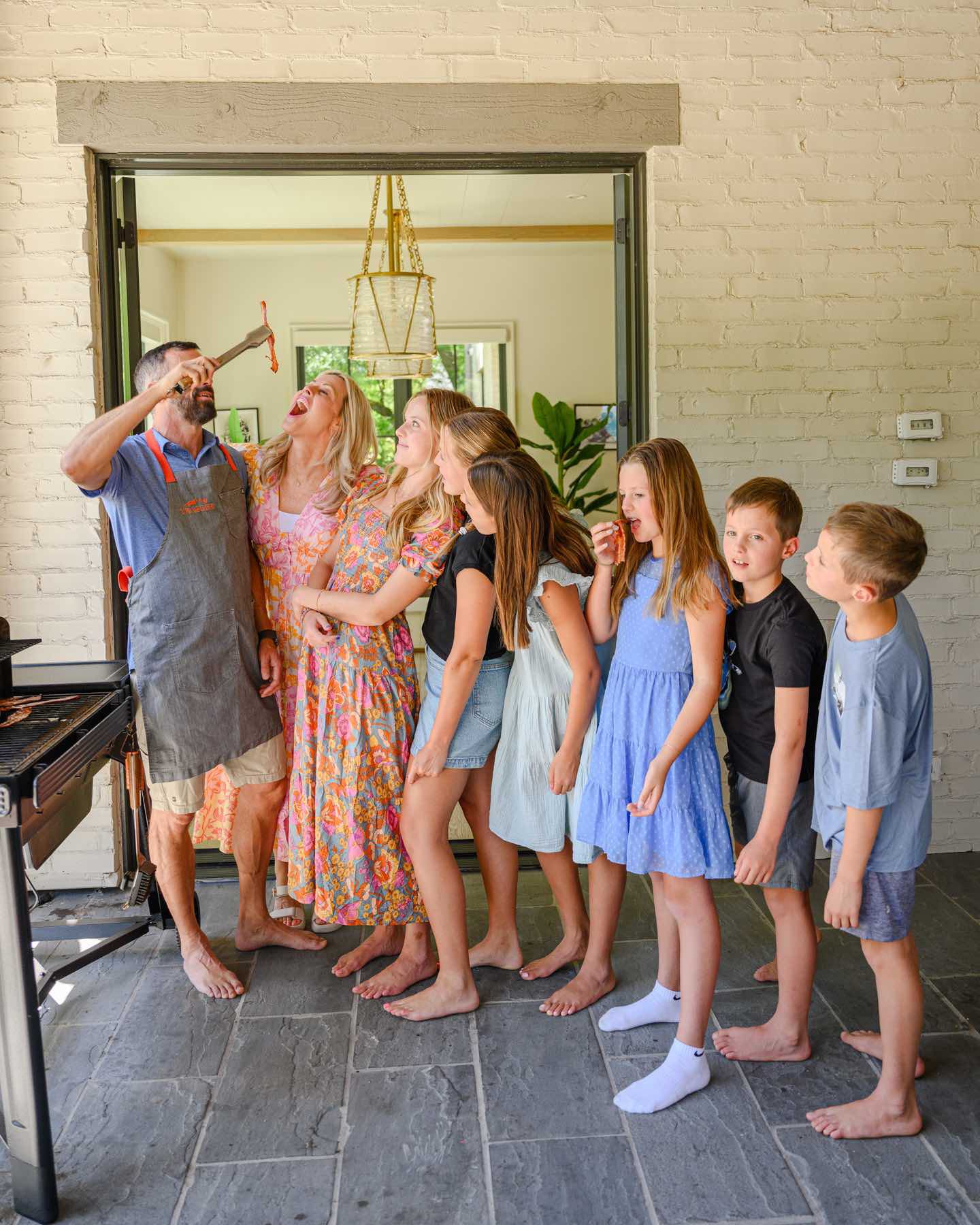
But I do like a cheeseburger. I was recently fishing with my boys in Heber, and we didn’t catch much. We were starving, and we stopped for multiple cheeseburgers at McDonald’s on the way home.
Do you like to cook, or is someone else the main cook? If yes, what is your go-to meal?
Before getting with Traeger, I was not a good cook. My wife is an incredible cook, and we’ve just launched a cookbook with generational recipes from her family – and I helped write the Traeger section, of course! I have improved, partly because tools like our Traegers make it easy.
Business meetings and sports often revolve around food. Community events often revolved around food. Do you think that food has a connecting power with people? And if so, why?
It’s interesting to look back on the history of the world and see how food has been the most communal moment for people to come together. Even going way back to hunters and gatherers, people would spend most of their time looking for food, but then would often gather around a fire and cook together. In our day and age, people spend a lot of time around food. When you leave the table, you often feel connected to those around you. We can have all kinds of different backgrounds, opinions, political points of view, experiences, etc., but there is something common that we share when human beings sit around food. So, for us, it’s fun to be around the center of something that people love.
Growing up in the 1980s, food was more about calories than an experience. That was in part because I grew up in a lower-middle-income home, and we didn’t like to cook. My mom had like two or three casseroles that she made, and then when my dad cooked, it would be pan-fried spam, and he told me it was steak – I will add that my life was forever changed when I had real steak! But it was about calories, and over time, it has become about experience. Oddly enough, as our lives move faster, I think Americans now enjoy more moments to take a deep breath over the dinner table, and families are trying to come together around meals instead of sprinting in a thousand different directions.
For our family now, when we gather around the dinner table, there are no devices. Not only don’t look at it, but don’t even bring it. We’re going to look each other in the eyes and have conversations.
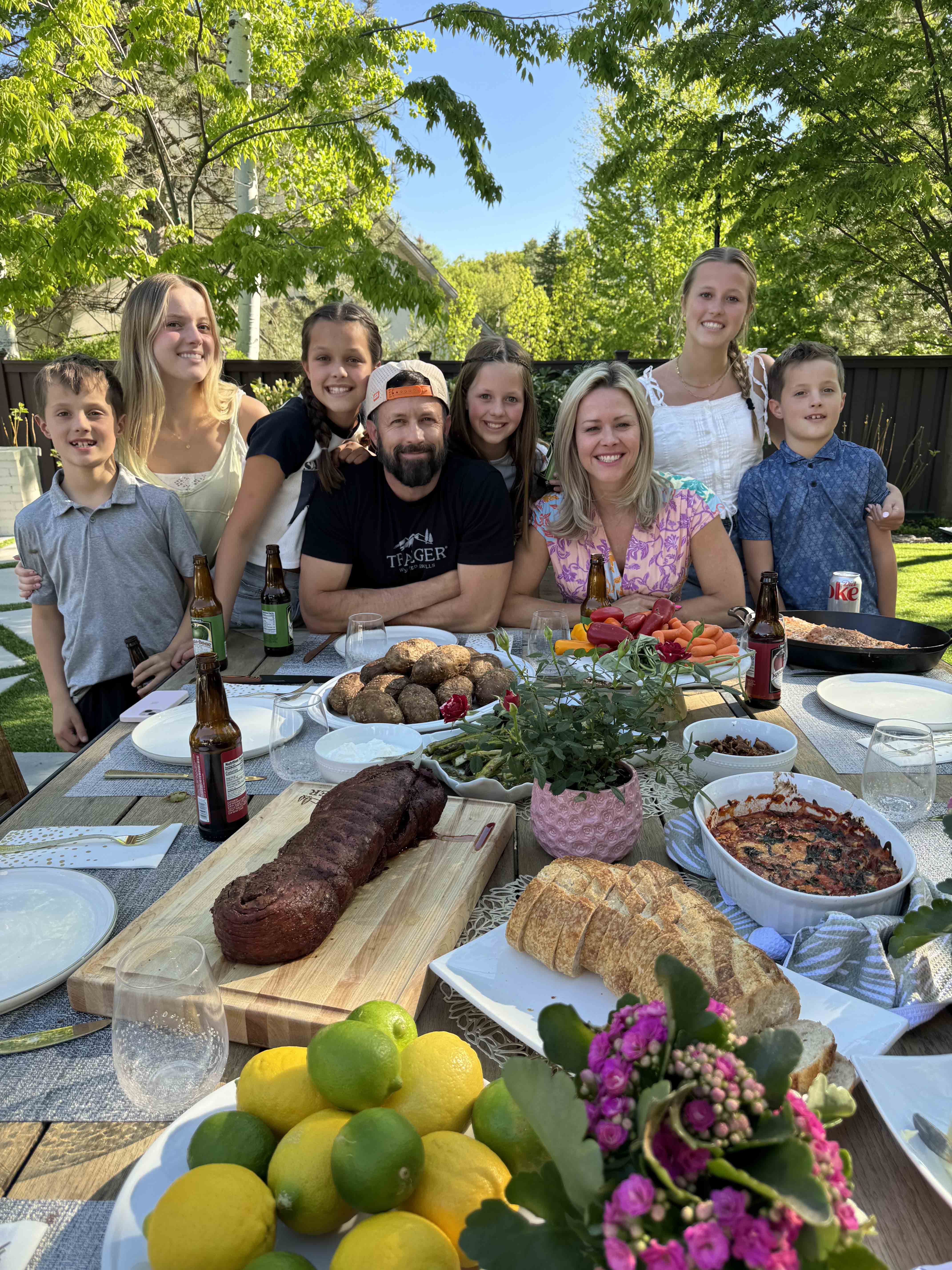
One of the trends that is really good in America right now is more recognition of the source of food. Over decades, elements of our food system have become increasingly hidden or opaque, and in some cases, they are not very nutritious or natural. I believe America is now in the early stages of rediscovering the roots of our food. I think of my childhood of driving to California and seeing cornfield after cornfield, and wheatfields, and thinking about “America the beautiful” with its amber waves of grain. And I think of how the backbone of America has been farming, and it’s beautiful to think of our ability as a country to be self-sufficient in growing our own food. Whether that is growing plants or raising animals as ranchers, gaining an understanding of where our food comes from is how we start to have better experiences and more appreciation. We have gained more respect for the process of growing crops and raising animals for consumption, and it has become an increasingly important part of our business.
An important part of our business is learning how we can support more Utah sources for our food – proteins and vegetables. Every time we do a community gathering, we like to talk about where the food comes from. We highlight when it’s a local farm, farmers market, local rancher, etc. We really respect the toil and labor that goes into our food system. When we’ve visited farms with our children, and then talk about it at dinner, we talk about how it came from a farm in Utah. It didn’t just magically come from a meat fairy and land on a grill. It came from a source.
What would you say you’d have for your last meal on earth?
I’d first start with the people. Then cook a simple meal on the Traeger. I’d have my wife and six kids sitting outside, enjoying great food and amazing baked goods for dessert. I’m a chocolate chip cookie and brownie guy.
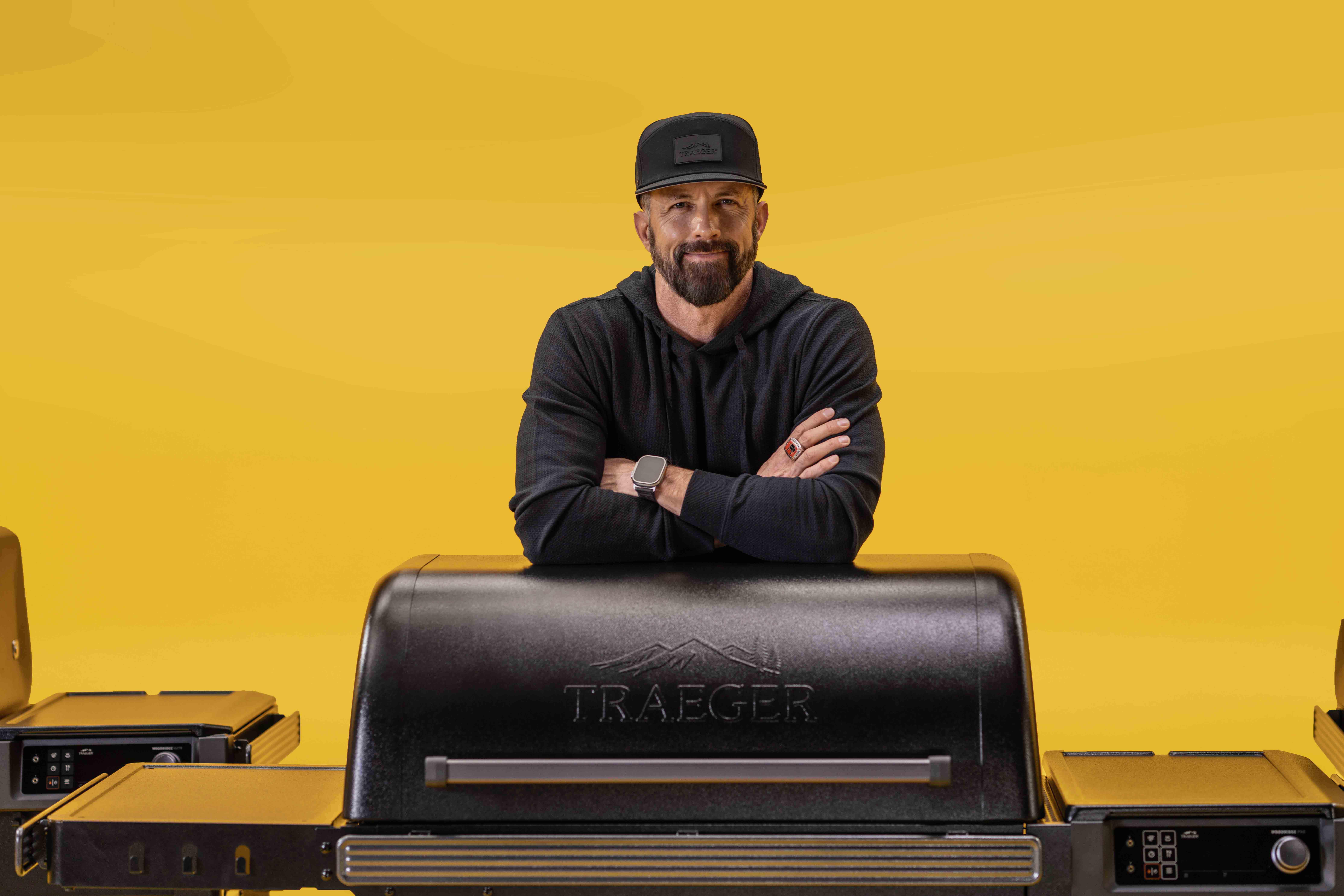
Thoughts on farmers & ranchers in Utah.
It’s hard for our farmers and ranchers. It has been the backbone of our country for hundreds of years, and that needs to continue. It’s crucial that we support our farmers, not just as consumers of food, but also as we develop the food systems and supply chains, and consider policies that support local production. In part because food is strategic. It’s the most important thing we interact with as human beings every day. We should rely on ourselves and no one else.
I recently attended a dinner in Washington, D.C., with the chair of the House Ways & Means Committee, where we discussed how to ensure that our trade policies enable our farmers to succeed.
Farmers need to make a fair margin for their food. The world of global trade is messy right now, but I hope that one of the outcomes once the dust settles will be that our farmers have equal access to our country and consumers, while other countries that have put up barriers will be held accountable. We need to think about how we support this industry in the long term. But this needs to be sustained, or we lose our heritage.
Want more news on this topic? Farm Bureau members may subscribe for a free email news service, featuring the farm and rural topics that interest them most!
